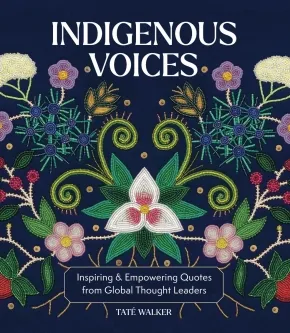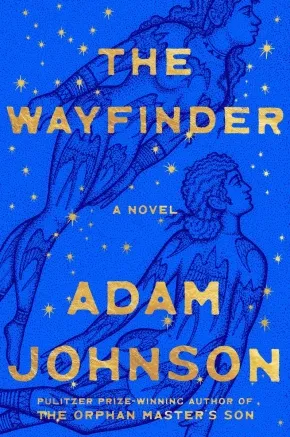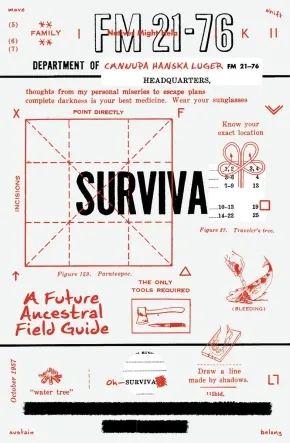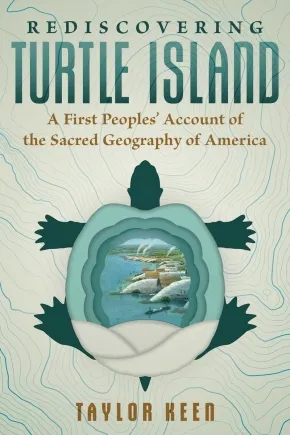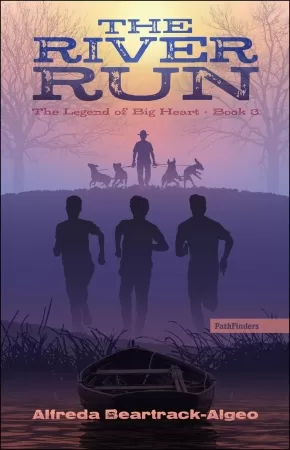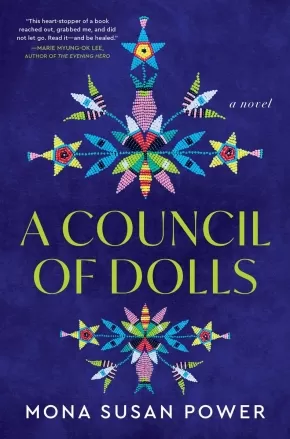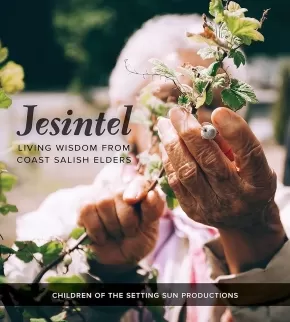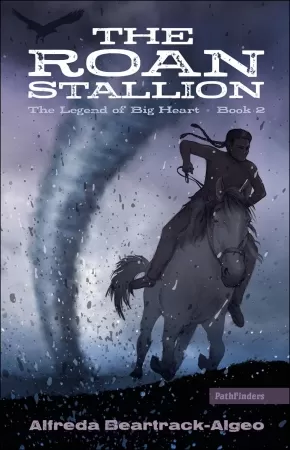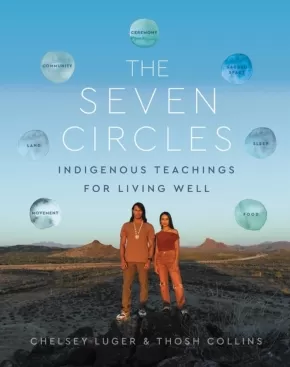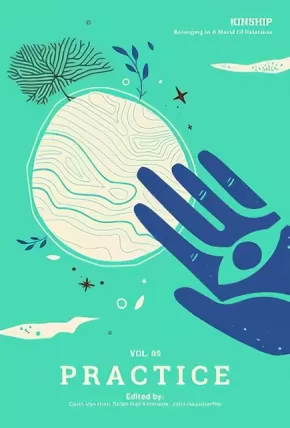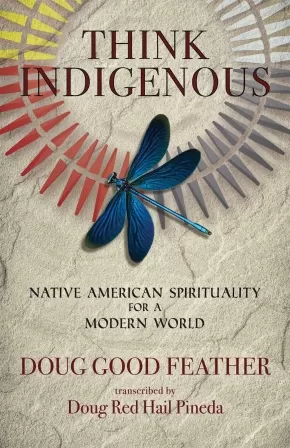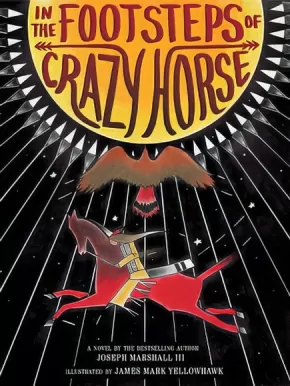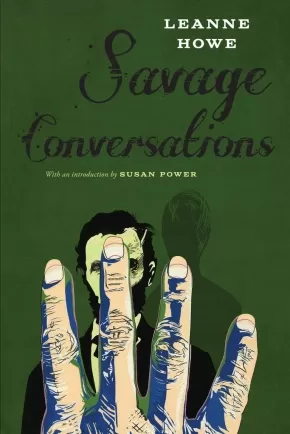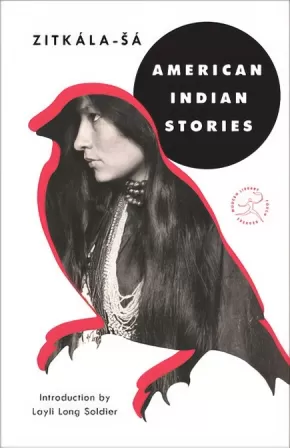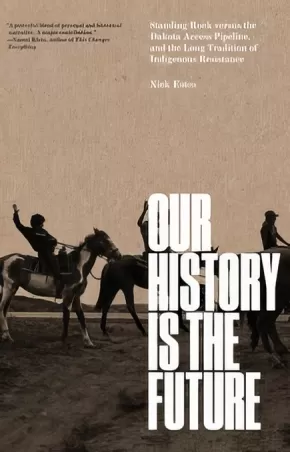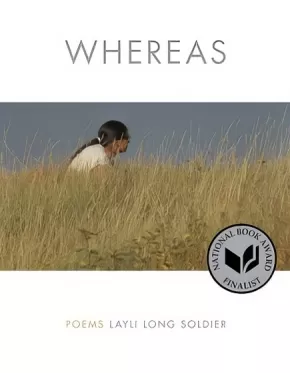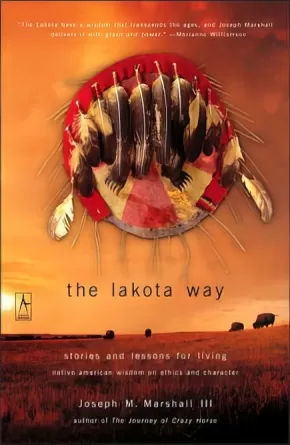
Sioux
1
-
15
of
19 Results;
Sort By
Go To
of 2
Indigenous Voices: Inspiring & Empowering Quotes from Global Thought Leaders
$25.99
Format:
Hardcover
Text Content Territories:
Indigenous Canadian; Indigenous American; Indigenous South American;
Reading Level: N/A
ISBN / Barcode: 9781577154914
Synopsis:
Synopsis:
Immerse yourself in Indigenous Voices, an inspiring volume of quotations by Indigenous thought leaders, activists, politicians, and scholars illustrated with stunning artwork by Indigenous artists.
This captivating book weaves together the timeless wisdom of Indigenous people from various nations and regions through a mosaic of more than 60 quotes, words, and stories by elders, leaders, activists, scholars, and influential contemporaries spanning all walks of life. Discover the diverse and unique heritage of extraordinary people like:
- Shina Novalinga – A member of the Inuk living in Montreal, Canada, Shina Novalinga is a content creator, singer, and activist who shares her Inuk culture across social media, of which an important aspect is traditional throat singing with her mother.
- Natali Segovia – A member of the Quechua, Natali Segovia is the Executive Director of the Water Protector Legal Collective and a human rights attorney. Her advocacy focuses on defending Water Protectors and human rights defenders facing repression for their activism.
- Corrina Gould – Of the Ohlone, Corrina Gould is the chair and spokesperson for the Confederated Villages of Lisjan, the Co-Director for the Sogorea Te' Land Trust, and the lead organizer for Indian People Organizing for Change.
- Elias Not Afraid – A member of the Apsáalooke (Crow), Elias Not Afraid is a mega-award-winning queer beader and fashion designer. He says, “When people think of native beadwork, they think trinkets and good luck charms and dream catchers but it’s far from it. I create wearable art that is durable and can be used daily and last over a lifetime and be used as a family heirloom.”
- Lily Gladstone – An American actress from the Blackfeet Reservation, Gladstone is of Piegan Blackfeet, Nez Perce, and European heritage. They earned critical acclaim for portraying Mollie Kyle, an Osage woman who survived the Osage Indian murders in Martin Scorsese’s film Killers of the Flower Moon, among other important roles in film and television.
- Kola Shippentower – A member of the Umatilla, Shippentower is the first Native American player for the Oregon Ravens, a tackle football team for women and non-binary players.
- Shiloh Maples – Of the Odawa, Maples is a citizen of the Little River Band of Indians based in Michigan. Through her interest in Indigenous food systems and her own Ojibwe and Odawa heritage, she developed the program Sacred Roots for the American Indian Health and Family Services in Detroit, where she taught cooking classes and promoted dishes using traditional, seasonal, and local ingredients in a way that improved participants’ health while connecting them with their culture.
- Alvera Sargent – Sargent, of the Akwesasne Mohawk, worked with the Akwesasne Freedom School, one of the oldest Indigenous language schools in North America. “My hope for our tribal community at large is that more of our people come back to our traditional space. I am grateful that our time has come as Indigenous people are being recognized for their traditional knowledge systems. The community is recognizing that Indigenous people do have the wisdom of our ancestors to share, which helps all areas of our society.”
- And more!
Indigenous Voices offers a unique opportunity to connect with ancient traditions, refresh your perspective with modern insight, and gain awareness and understanding that resonate across cultures and generations.
Additional Information
192 pages | 7.5" x 8.6" | Hardcover
The Wayfinder: A Novel
$42.00
Format:
Hardcover
Text Content Territories:
Indigenous Polynesian; Indigenous Tongan;
Reading Level: N/A
ISBN / Barcode: 9780374619572
Synopsis:
Synopsis:
A historical epic about a girl from a remote Tongan island who becomes her people's queen.
Talking corpses, poetic parrots, and a fan that wafts the breath of life—this is the world young Kōrero finds herself thrust into when a mysterious visitor lands on her island, a place so remote its inhabitants have forgotten the word for stranger. Her people are desperate and on the brink of starvation, and the wayward stranger offers them an impossible choice: they can remain in the only home they’ve ever known and await the uncertainty to come, or Kōrero can join him and venture into unfamiliar waters, guided by only the night sky and his assurance of a bountiful future in the Kingdom of Tonga. What Kōrero and her people don’t know is that the promised refuge is no utopia—instead, Tonga is an empire at war and on the verge of collapse, a place where brains are regularly liberated from skulls and souls get trapped in coconuts with some frequency.
The perils of Tonga are compounded by a royal feud: loyalties are shifting, graves are being opened, and everyone lives in fear of a jellyfish tattoo. Here, survival can rest on a perfectly performed dance or the acceptance of a cup of kava. Together, the stranger and Kōrero embark upon an epic voyage—one that will deliver them either to salvation or to the depths of the Pacific.
Evoking the grandeur of Wolf Hall and the splendor of Shōgun, the Pulitzer Prize–winning novelist Adam Johnson conjures oral history, restores the natural world, and locates what’s best in humanity. Toweringly ambitious and breathtakingly immersive, The Wayfinder is an instant, timeless classic.
Reviews
“A powerful and original epic . . . Deadly politics, tragic romance and dangerous sea journeys keep the drama at a spirited boil.”—The New York Times
“[An] epic-scale historical adventure from Pulitzer Prize winner Adam Johnson . . . Johnson paints a rich tale of nature, politics, and tradition . . . It's a unique, spellbinding saga that drew us into an elaborate world.”—Apple's Best of the Month
“Expansive in scope, historically detailed, and totally enthralling . . . Johnson's monumental research into the history, legacy, and imprint of the Polynesian culture is evident in the meticulous detail of his narrative—which is about much more than his characters, whose vibrancy demands acknowledgement, and his gorgeous landscape descriptions . . . Part bildungsroman, part historical exploration, this novel is a study of the many islands in the South Pacific, their power struggles, abuses of power, and the perseverance to survive.”—Booklist (starred review)
"Epic historical fiction with a twist of magical realism, The Wayfinder follows a Tongan royal family facing political upheaval and a community on a distant island facing starvation. It is a dual timeline with multiple viewpoints that makes you feel totally immersed in the story." — Goodreads Review, Shannon
Additional Information
736 pages | 6.00" x 9.00" | Hardcover
SURVIVA: A Future Ancestral Field Guide
$57.50
Format:
Paperback
Text Content Territories:
Indigenous American;
ISBN / Barcode: 9781961814264
Synopsis:
Synopsis:
An ambitious, world-envisioning work of Indigenous futurism.
Since 2015—through a proliferation of forms including sculpture, regalia, film, photography, poetry, painting, and installation—acclaimed multimedia artist Cannupa Hanska Luger has been weaving together strands of a new myth. Collectively referred to as Future Ancestral Technologies, this sprawling series of interrelated works seeks to reimagine Indigenous life and culture in a postcolonial world where space exploration has reduced and reconfigured the earth’s population.
Part graphic novel, part art book, SURVIVA: A Future Ancestral Field Guide offers readers a view beneath, beyond, and between the lines of Luger's ever-expanding artistic universe. In this ecstatically hybrid work, Luger transforms a 1970s military survival guide through poetic redaction, speculative fiction, and iterative line drawing—deftly surfacing and disrupting the colonial subconscious that haunts this vexed source text. An epic and timely meditation on planetary life in the midst of transformation, SURVIVA boldly presents an earth-based, demilitarized futuredream that foregrounds Indigenous knowledge as critical to humanity’s survival
SURVIVA is the first title from Aora Books, a publishing imprint dedicated to exploring transformational thought and culture that transcends borders, disciplines, and traditions. Rooted in an ethos of polyvocality and planetary consciousness, Aora publishes works that forge bold connections across time, place, ideas, and beings often seen as separate.
Reviews
"SURVIVA offers Indigenous wisdom for a shared future built on ancestral knowledge in radical relation. This is a survival guide like none other." —Candice Hopkins, curator of the Forge Project
"SURVIVA boldly reimagines our conceptions of time and history, challenging our collective narratives and pushing us to rethink the art of survival through a lens of transformation."—Hank Willis Thomas, artist and cofounder of For Freedoms
"Cannupa Hanska Luger has created a wondrous book of survivance, a story to carry in pocket and study at every opportunity. At once a dystopia (earth is near destroyed) and a postcolonial fantasy (the colonizers abandon the planet for good), SURVIVA is a work of artistic brilliance that draws our attention to the simultaneity of ruins and futures. Rich with dreampower and evocation, these pages illustrate the mysteries of space-time, the dissolution of boundaries, and the relational universe described by Indigenous quantum mechanics. Read carefully, SURVIVA has the power to bend time itself, lifting us from past and present into futures innumerable."—Philip J. Deloria, Leverett Saltonstall Professor of History at Harvard University and author of Playing Indian
Additional Information
162 pages | 5.44" x 8.31" | original line drawings & ecopoetic fragments - reminiscent of 1970s diy photocopy culture | Paperback
Rediscovering Turtle Island: A First Peoples' Account of the Sacred Geography of America
$24.99
Format:
Paperback
Text Content Territories:
Indigenous American; Native American; Ponca; Osage; Omaha; Kaw; Cherokee; Anishinaabeg; Algonquin; Sioux;
Reading Level: N/A
ISBN / Barcode: 9781591435204
Synopsis:
Synopsis:
An exploration of Indigenous cosmology and history in North America
• Examines the complexities of Indigenous legends and creation myths and reveals common oral traditions across much of North America
• Explores the history of Cahokia, the Mississippian Mound Builder Empire of 1050-1300 CE, told through the voice of Honga, a Native leader of the time
• Presents an Indigenous revisionist history regarding Thomas Jefferson, expansionist doctrine, and Manifest Destiny
While Western accounts of North American history traditionally start with European colonization, Indigenous histories of North America—or Turtle Island—stretch back millennia. Drawing on comparative analysis, firsthand Indigenous accounts, extensive historical writings, and his own experience, Omaha Tribal member, Cherokee citizen, and teacher Taylor Keen presents a comprehensive re-imagining of the ancient and more recent history of this continent’s oldest cultures. Keen reveals shared oral traditions across much of North America, including among the Algonquin, Athabascan, Sioux, Omaha, Ponca, Osage, Quapaw, and Kaw tribes. He explores the history of Cahokia, the Mississippian Mound Builder Empire of 1050–1300 CE. And he examines ancient earthen works and ceremonial sites of Turtle Island, revealing the Indigenous cosmology, sacred mathematics, and archaeoastronomy encoded in these places that artfully blend the movements of the sun, moon, and stars into the physical landscape.
Challenging the mainstream historical consensus, Keen presents an Indigenous revisionist history regarding Thomas Jefferson, expansionist doctrine, and Manifest Destiny. He reveals how, despite being displaced as the United States colonized westward, the Native peoples maintained their vision of an intrinsically shared humanity and the environmental responsibility found at the core of Indigenous mythology.
Building off a deep personal connection to the history and mythology of the First Peoples of the Americas, Taylor Keen gives renewed voice to the cultures of Turtle Island, revealing an alternative vision of the significance of our past and future presence here.
Reviews
“Brother Keen, with his infinite Indigenous and academic knowledge, brings forth amazing truths about ancient North American cultures the modern world was unaware of. Not only are the ancient earthworks extensive and scientifically and astronomically complex but Keen unveils they are all connected across the entire continent, mirroring the heavens. Simply incredible research.” — Scott Wolter, host of History 2 (H2) Channel’s America Unearthed, world-renowned forensic geol
“Careful analysis by Taylor Keen of the placement and designs of earthworks of the Indigenous people of North America reveals far more complex planning and design was involved than just random location selection of mounds for burials, as we were taught to think. His geographical analysis reveals the sacred earthworks designs were far more advanced and esoteric in nature, something he is uniquely qualified to understand as Indigenous himself and a member of several esoteric orders. He proves definitively the intricate level of knowledge of astronomy, heavenly body movements, mathematics, and cosmology involved in the creation of these earthworks, not only at a local level, but incredibly as long-range alignments as well. This revelation, Keen explains, was something that was dismissed and suppressed by early nineteenth-century archaeologists who breached and destroyed the sacred earthworks and burial mounds as part of the promotion of ‘manifest destiny,’ with the intent being justification of taking tribal lands for settlement. Keen’s incredibly important work gives a whole new perspective on the history of North America.” — Janet Wolter, coauthor of America: Nation of the Goddess
“The official history of the United States begins with Spanish contact in the late fifteenth century. The oral traditions and legends of the various Native peoples of North America, however, stretch back much earlier, into the opaque mists of preliterate times. With a member of the Earthen Bison Clan of the Omaha Tribe to serve as our guide, Rediscovering Turtle Island leads the reader along near-forgotten, overgrown paths that twist and turn throughout a resacralized landscape, decorated with ancient landmarks, populated with whispering ghosts and supernatural beings. The sacred geography of America will never again appear the same.” — P. D. Newman, author of Native American Shamanism and the Afterlife Journey in the Mississippi Valle
“What could be more fascinating than the origin of mankind itself? The premise is staggering and the consequences far-reaching. Keen’s hard work pays off immensely in Rediscovering Turtle Island, and readers will be gripped by that experience on every page.” — Sidian M.S. Jones, coauthor of The Voice of Rolling Thunder
Additional Information
208 pages | 6.00" x 9.00" | 70 b&w illustrations | Paperback
Jeremy Frey: Woven
$67.50
Format:
Hardcover
Text Content Territories:
Indigenous American; Native American; Passamaquoddy (Peskotomuhkati);
ISBN / Barcode: 9780847899708
Synopsis:
Synopsis:
The only book on award-winning Indigenous basket maker Jeremy Frey, accompanying his first major traveling exhibition.
Frey (Passamaquoddy) is one of the most respected Indigenous basket makers working today. Descended from a long line of basket makers, his work is known for its intricate design and exquisite artistry, which reflect both traditional techniques and his own creative vision.
This catalogue considers his work from a variety of perspectives. Secord, whom Frey credits for guiding his career as the founder of Maine Indian Basketmakers Alliance, contributes a detailed biographical essay. DeSimone situates Frey’s work in the broader field of contemporary art, with a specific focus on the new video work he is making for the exhibition. Hoska focuses on Frey’s art in the broader context of Native basket and fiber arts. And Mize considers the ways in which his expanding practice registers ecological knowledge, time, and the impact of climate change.
Additional Information
160 pages | 8.85" x 11.91" | Hardcover
The River Run
$12.95
Format:
Paperback
Text Content Territories:
Indigenous American; Native American; Sioux; Lakota;
ISBN / Barcode: 9781570674136
Synopsis:
Synopsis:
The River Run is the third installment in The Legend of Big Heart series. To fulfill the government's policy to -- destroy the Indian and save the man -- Alfred Swallow and his friends Orson and Junior are forced to leave their families and homes to attend a residential mission school.
The students' beautiful long hair is cut, and they are forbidden to speak their native language. Even the slightest infraction is severely punished. At the height of hopelessness, Alfred gets a ghostly visit from beyond the grave, telling him to run to the river. With a bounty on their heads, Alfred and his friends Orson and Junior plunge into a harrowing quest for freedom.
The boys must rely on their instincts and intelligence as their journey takes them to Sioux City, Iowa. Here they find work at a carnival, but their jobs lead them into the underground world of gangsters and crime, and ultimately to Alfred's missing parents.
Educator & Series Information
Recommended for teens.
This is Book 3 in the The Legend of Big Heart Series. The Legend of Big Heart Series takes place during the early twentieth century amid the forced assimilation of Native tribes into mainstream America. The series features the exciting adventures of young Alfred Swallow as he matures into a man and helps his family survive and prosper on the Lower Brule Lakota Reservation in South Dakota.
This is a work of historical fiction. All incidents, events, dialogue, names, and characters except for some well-known historical figures are products of the author’s imagination and are not to be construed as real. Where real-life historical figures appear, the situations, incidents, and dialogues concerning those persons are fictional and are not intended to depict actual events. In all other respects, any likeness to actual persons, living or dead, or actual events is purely coincidental.
This book is part of the PathFinders series of Hi-Lo (high interest, low readability) novels, which offers the following features:
• Indigenous teen protagonists
• Age-appropriate plots
• Contemporary and historical fiction
• Indigenous authors
The PathFinders series is from an American publisher. Therefore, Indigenous terminology in the PathFinders books is not the same as Canadian Indigenous terminology. This prompts a useful teaching moment for educators in discussing appropriate terminology use in Canada.
Additional Information
160 pages | 4.50" x 7.00" | Paperback
A Council of Dolls: A Novel (HC) (3 in Stock)
$37.00
Format:
Hardcover
Text Content Territories:
Indigenous American; Native American; Sioux; Dakota; Yankton (Yanktonai);
Grade Levels: 12; University/College;
ISBN / Barcode: 9780063281097
Synopsis:
Synopsis:
The long-awaited, profoundly moving, and unforgettable new novel from PEN Award–winning Native American author Mona Susan Power, spanning three generations of Yanktonai Dakota women from the 19th century to the present day.
From the mid-century metropolis of Chicago to the windswept ancestral lands of the Dakota people, to the bleak and brutal Indian boarding schools, A Council of Dolls is the story of three women, told in part through the stories of the dolls they carried….
Sissy, born 1961: Sissy’s relationship with her beautiful and volatile mother is difficult, even dangerous, but her life is also filled with beautiful things, including a new Christmas present, a doll called Ethel. Ethel whispers advice and kindness in Sissy’s ear, and in one especially terrifying moment, maybe even saves Sissy’s life.
Lillian, born 1925: Born in her ancestral lands in a time of terrible change, Lillian clings to her sister, Blanche, and her doll, Mae. When the sisters are forced to attend an “Indian school” far from their home, Blanche refuses to be cowed by the school’s abusive nuns. But when tragedy strikes the sisters, the doll Mae finds her way to defend the girls.
Cora, born 1888: Though she was born into the brutal legacy of the “Indian Wars,” Cora isn’t afraid of the white men who remove her to a school across the country to be “civilized.” When teachers burn her beloved buckskin and beaded doll Winona, Cora discovers that the spirit of Winona may not be entirely lost…
A modern masterpiece, A Council of Dolls is gorgeous, quietly devastating, and ultimately hopeful, shining a light on the echoing damage wrought by Indian boarding schools, and the historical massacres of Indigenous people. With stunning prose, Mona Susan Power weaves a spell of love and healing that comes alive on the page.
Reviews
“A Council of Dolls reached out, grabbed me and did not let go. Power’s ability to make language sing, cry, scream, and laugh illuminates this heartstopper of a book that shines a light into the dark corners of America’s history. I wanted the generational journey I was taking with these unforgettable characters—and their dolls—to never end. Read it--and be healed." — Marie Myung-Ok Lee, author of The Evening Hero
“A Council of Dolls absorbs through the skin, enters the bone, and disperses through the psyche—it perfectly captures the internal roots of the Native experience. Through the lives of three Dakota women, we grapple with the emotional, psychological, and spiritual toll on Indigenous peoples enduring an often brutal system and, moreover, how strength, healing, and love reverberate down each passing generation to dispense hope and resiliency. I cannot more highly recommend Power’s newest masterpiece.” — Oscar Hokeah, PEN/Hemingway award-winning author of Calling for a Blanket Dance
"Mona Susan Power’s new novel is an honor song to the love and strength of Native families and our stories, to our brilliant selves. I couldn’t have known how much I needed the wisdom and offerings of these pages." — Kelli Jo Ford, author of Crooked Hallelujah
“This tender and magical novel will stay with me for a long time. Mona Susan Power writes with dazzling empathy. The result is a heart-rending and many-layered narrative, a captivating story which is also a thrilling testimonial to the power of stories.” — Margot Livesey, author of The Boy in the Field
"A resplendent novel about the spirited lives of three inspiring women who endure significant change and hardship. Each story so deeply compelling I wanted to read quickly but was magnetized by the transformative power of each voice. A mighty, dazzling whirlwind of storytelling. These stories lift from the page. Prepare to stay up all night. A Council of Dolls is mesmerizing. Take a deep breath! Mona Susan Power can peer into darkness and transform it." — Debra Magpie Earling — Debra Magpie Earling
“A work of exquisite beauty and courageous truth-telling, and an unforgettable homage to ancestral suffering and strength.”
— Sheila O’Connor, author of Evidence of V
“A talent like Susan Power comes along once in a lifetime, and lucky for us she's arrived. Here is a debut so stunning, so extraordinary in its depth and passion, you will swear there's a miracle on every page.” — Alice Hoffman, on The Grass Dancer
"This book is well-written. It includes elements of historical fiction and a bit of real life horror. The role of the dolls in these women's lives was the most thought-provoking aspect of the novel. It added a bit of a fantasy element to the story. I wondered what the author's intention was. The dolls seem to be symbolic in addition to invisible friends for the girls. They were also silent, supposedly inanimate witnesses to what the young women experienced. The parts of the story told from the dolls' POV were especially intriguing. I enjoyed the section about how the Shirley Temple doll was made, and the doll was presented as self-aware. The author wove mystery and symbolism around the dolls without being blatant. She left readers room to make their own interpretations. I really enjoyed and appreciated that. The book is also full of interesting philosophical statements." - Claudia, Goodreads Review
Additional Information
304 pages | 6.00" x 9.00" | Hardcover
Jesintel: Living Wisdom from Coast Salish Elders
$48.00
Artists:
Format:
Paperback
Text Content Territories:
Indigenous Canadian; First Nations; Salish; Coast Salish; Sto:lo; Saanich (WSANEC); Tsartlip; Musqueam; Malahat; Cowichan; Tsleil-Waututh; Indigenous American; Native American; Salish; Coast Salish; Tulalip; Swinomish; Snoqualmie; Nisqually; Muckleshoot; Lhaq'temish (Lummi Nation); Klallam (Clallam); Jamestown S'Klallam;
Grade Levels: 12; University/College;
ISBN / Barcode: 9780295748641
Synopsis:
Synopsis:
“We need to learn and grow together, and if we are able to do this, we will create harmony,” counsels Tom Sampson, an elder of Tsartlip First Nation in British Columbia.
Dynamic and diverse, Coast Salish culture is bound together by shared values and relations that generate a resilient worldview. Jesintel—"to learn and grow together"—characterizes the spirit of this book, which brings the cultural teachings of nineteen elders to new generations.
Featuring interviews that share powerful experiences and stories, Jesintel illuminates the importance of ethical reciprocal relationships and the interconnectedness of places, land, water, and the spirit within all things. Elders offer their perspectives on language revitalization, Coast Salish family values and naming practices, salmon, sovereignty, canoe racing, and storytelling. They also share traumatic memories, including of their boarding school experiences and the epidemics that ravished their communities. Jesintel highlights the importance of maintaining relations and traditions in the face of ongoing struggles. Collaboration is at the heart of this work and informs how the editors and community came together to honor the boundless relations of Coast Salish people and their territories.
Elders Interviewed:
Tom Sampson (Tsartlip First Nation)
Virginia Cross (Muckleshoot Tribe)
Ernestine Gensaw (Lummi Nation)
Steve and Gwen Point (Stó:lō Nation)
Gene and Wendy Harry (Malahat Nation)
Claude Wilbur (Swinomish Tribe)
Richard Solomon (Lummi Nation)
Elaine Grinell (Jamestown S’Klallam Tribe)
Arvid Charlie (Cowichan Nation)
Amy George (Tsleil-Waututh Nation)
Nancy Shippentower (Nisqually Tribe)
Nolan Charles (Musqueam Indian Band)
Andy de los Angeles (Snoqualmie Tribe)
Jewell James (Lummi Nation)
Kenny Moses Sr. Family (Tulalip Tribal Nation)
Ramona Morris (Lummi Nation)
Reviews
"A beautiful sharing of thriving Coast Salish communities. Indigenous elders, cultures, and languages have so much precious wisdom to share, and Jesintel celebrates these through storytelling and photos. It is a generous gift to anyone who wants to better understand the resilience of Indigenous communities."- Michelle M. Jacob (Yakama), author of The Auntie Way: Stories Celebrating Kindness, Fierceness, and Creativity
Educator Information
Nineteen elders from Coast Salish communities in the Pacific Northwest and British Columbia offer a portrait of their perspectives on language, revitalization, and Coast Salish family values. Topics include naming practices, salmon, canoe journeys and storytelling.
Additional Information
224 pages | 9.00" x 10.00" | 144 colour illustrations | 1 map | Paperback
The Roan Stallion
$12.95
Format:
Paperback
Text Content Territories:
Indigenous American; Native American; Sioux; Lakota;
ISBN / Barcode: 9781939053480
Synopsis:
Synopsis:
This hi-lo teen novel is filled with excitement. Alfred Swallow meets a wild roan stallion that is not an ordinary horse, but a medicine hat roan stallion that is believed to have special powers. The bond between Alfred and the stallion reaches far into a world of hopes and dreams. It's 1929 and times are hard for Alfred's Lakota family on the Dakota prairie. Alfred knows his grandfather could use a new tractor, so with the help of his friends and the roan stallion, he makes plans to win the prize money at the annual White River Relay Race. But time is short, as the race is just weeks away. Unaware of the dangers that lie ahead, Alfred prepares to train the horse. Even though the odds are against Alfred and his team, something in the grandstand catches his eye on the day of the race, and that changes everything. Can Alfred's determination and prayers carry them through to win?
Educator & Series Information
Recommended for teens.
This is Book 2 in the The Legend of Big Heart Series. The Legend of Big Heart Series takes place during the early twentieth century amid the forced assimilation of Native tribes into mainstream America. The series features the exciting adventures of young Alfred Swallow as he matures into a man and helps his family survive and prosper on the Lower Brule Lakota Reservation in South Dakota.
This is a work of historical fiction. All incidents, events, dialogue, names, and characters except for some well-known historical figures are products of the author’s imagination and are not to be construed as real. Where real-life historical figures appear, the situations, incidents, and dialogues concerning those persons are fictional and are not intended to depict actual events. In all other respects, any likeness to actual persons, living or dead, or actual events is purely coincidental.
This book is part of the PathFinders series of Hi-Lo (high interest, low readability) novels, which offers the following features:
• Indigenous teen protagonists
• Age-appropriate plots
• Contemporary and historical fiction
• Indigenous authors
The PathFinders series is from an American publisher. Therefore, Indigenous terminology in the PathFinders books is not the same as Canadian Indigenous terminology. This prompts a useful teaching moment for educators in discussing appropriate terminology use in Canada.
Additional Information
128 pages | 4.50" x 7.00" | Paperback
The Seven Circles: Indigenous Teachings for Living Well
$36.99
Format:
Hardcover
Text Content Territories:
Indigenous American; Native American; Sioux; Pima (Akimel O'odham); Osage; Haudenosaunee (Iroquois); Seneca; Cayuga; Anishinaabeg; Ojibwe (Chippewa); Turtle Mountain Anishinaabe;
Grade Levels: 12; University/College;
ISBN / Barcode: 9780063119208
Synopsis:
Synopsis:
In this revolutionary self-help guide, two beloved Native American wellness activists offer wisdom for achieving spiritual, physical, and emotional wellbeing rooted in Indigenous ancestral knowledge.
When wellness teachers and husband-wife duo Chelsey Luger and Thosh Collins founded their Indigenous wellness initiative, Well for Culture, they extended an invitation to all to honor their whole self through Native wellness philosophies and practices. In reclaiming this ancient wisdom for health and wellbeing—drawing from traditions spanning multiple tribes—they developed the Seven Circles, a holistic model for modern living rooted in timeless teachings from their ancestors. Luger and Collins have introduced this universally adaptable template for living well to Ivy league universities and corporations like Nike, Adidas, and Google, and now make it available to everyone in this wise guide.
The Seven Circles model comprises interconnected circles that keep all aspects of our lives in balance, functioning in harmony with one another. They are:
- Food
- Movement
- Sleep
- Ceremony
- Sacred Space
- Land
- Community
In The Seven Circles, Luger and Collins share intimate stories from their life journeys growing up in tribal communities, from the Indigenous tradition of staying active and spiritually centered through running and dance, to the universal Indigenous emphasis on a light-filled, minimalist home to create sacred space. Along the way, Luger and Collins invite readers to both adapt these teachings to their lives as well as do so without appropriating and erasing the original context, representing a critical new ethos for the wellness space. Each chapter closes with practical advice on how to engage with the teachings, as well as wisdom for keeping that particular circle in harmony with the others.
With warmth and generosity—and 75 atmospheric photographs by Collins throughout—The Seven Circles teaches us how to connect with nature, with our community, and with ourselves, and to integrate ancient Indigenous philosophies of health and wellbeing into our own lives to find healing and balance.
Reviews
“A life-changing holistic guide to wellness rooted in empowerment, resiliency, and ‘good medicine.’ This book is for any human being searching for wellness solutions in a chaotic world, a true antidote to colonization.” — Vina Brown, Indigenous Scholar, Entrepreneur, Artist, and Professor of Indigenous Studies at Northwest Indian College
“The Seven Circles is a true innovation in Indigenous thought; it brings our shared heritage and traditional teachings to life. Truly inspiring. Readers will find their journey to be a motivating guide for self-transformation.” — Taiaiake Alfred, Mohawk Philosopher
“While the term ‘wellness’ has been co-opted and diluted by (primarily white) social media influencers in recent years, Luger and Collins are recentering the conversation around how to use Indigenous cultural values, foods, and modalities of movement as tools for spiritual, mental, physical, and emotional healing.” — Vanity Fair
“[Two of the] faces in the health and wellness scene that are pushing for inclusivity, justice, and kindness, toppling old conventions to make their own…Luger and Collins rewrite modern narratives regarding Native health while addressing complex histories and ongoing disparities.” — Outside magazine
“Spellbinding. This may be the first book I’ve ever read that made me stop and decide, “I’m making this change now!” Seven Circles opened my eyes to a way of life that is tested by time, guided by nature, and urgently needed today." — Christopher McDougall, author of Born to Run, Natural Born Heroes, and Running with Sherman
“Wisdom abounds in this stimulating offering.” — Publishers Weekly
“Luger and Collins provide a range of sensible, informed, accessible guidance for both small- and large-scale lifestyle changes. An appealing manual for healing the self through Indigenous traditions.” — Kirkus Reviews
Additional Information
256 pages | 7.00" x 9.00" | 75 Colour Photos | Hardcover
The Land Grab
$12.95
Format:
Paperback
Text Content Territories:
Indigenous American; Native American; Sioux; Lakota;
ISBN / Barcode: 9781939053404
Synopsis:
Synopsis:
In 1929, a corrupt land agent used fire and frightening tactics to grab the farm of a Lakota family in Lower Brule, South Dakota.
In 1929 Alfred is eleven years old and has many responsibilities not expected of a young boy. He and his Lakota family are being forced to leave behind their tribal values and traditions and assimilate into mainstream American culture and society. His Lalá (grandfather), has instilled in his grandson many Lakota traditions which Alfred respects, but at times struggles to understand the message they convey. From falling into a den of rattlesnakes, fending off a pack of wolves, to skirmishes with a ruthless land agent and his cronies, this is a page-turner of historical fiction.
Educator & Series Information
Recommended for grades 9 to 12.
This book has a Fry Reading Level of 6.
This is Book 1 in the The Legend of Big Heart Series. The Legend of Big Heart Series takes place during the early twentieth century amid the forced assimilation of Native tribes into mainstream America. The series features the exciting adventures of young Alfred Swallow as he matures into a man and helps his family survive and prosper on the Lower Brule Lakota Reservation in South Dakota.
This is a work of historical fiction. All incidents, events, dialogue, names, and characters except for some well-known historical figures are products of the author’s imagination and are not to be construed as real. Where real-life historical figures appear, the situations, incidents, and dialogues concerning those persons are fictional and are not intended to depict actual events. In all other respects, any likeness to actual persons, living or dead, or actual events is purely coincidental.
This book is part of the PathFinders series of Hi-Lo (high interest, low readability) novels, which offers the following features:
• Indigenous teen protagonists
• Age-appropriate plots
• Contemporary and historical fiction
• Indigenous authors
The PathFinders series is from an American publisher. Therefore, Indigenous terminology in the PathFinders books is not the same as Canadian Indigenous terminology. This prompts a useful teaching moment for educators in discussing appropriate terminology use in Canada.
Additional Information
118 pages | 4.50" x 6.90" | Paperback
Kinship: Belonging in a World of Relations, Vol. 5 - Practice
$29.95
Editors:
Format:
Paperback
Text Content Territories:
Indigenous;
Reading Level: N/A
ISBN / Barcode: 9781736862544
Synopsis:
Additional Information
194 pages | 5.27" x 7.75" | Paperback
Synopsis:
Volume 5 of the Kinship series revolves around the question of practice: What are the practical, everyday, and lifelong ways we become kin?
We live in an astounding world of relations. We share these ties that bind with our fellow humans—and we share these relations with nonhuman beings as well. From the bacterium swimming in your belly to the trees exhaling the breath you breathe, this community of life is our kin—and, for many cultures around the world, being human is based upon this extended sense of kinship.
Kinship: Belonging in a World of Relations is a lively series that explores our deep interconnections with the living world. These five Kinship volumes—Planet, Place, Partners, Persons, Practice—offer essays, interviews, poetry, and stories of solidarity, highlighting the interdependence that exists between humans and nonhuman beings. More than 70 contributors—including Robin Wall Kimmerer, Richard Powers, David Abram, J. Drew Lanham, and Sharon Blackie—invite readers into cosmologies, narratives, and everyday interactions that embrace a more-than-human world as worthy of our response and responsibility. These diverse voices render a wide range of possibilities for becoming better kin.
From the perspective of kinship as a recognition of nonhuman personhood, of kincentric ethics, and of kinship as a verb involving active and ongoing participation, how are we to live? “Practice,” Volume 5 of the Kinship series, turns to the relations that we nurture and cultivate as part of our lived ethics. The essayists and poets in this volume explore how we make kin and strengthen kin relationships through respectful participation—from creative writer and dance teacher Maya Ward’s weave of landscape, story, song, and body, to Lakota peace activist Tiokasin Ghosthorse’s reflections on language as a key way of knowing and practicing kinship, to cultural geographer Amba Sepie’s wrestling with how to become kin when ancestral connections have frayed. The volume concludes with an amazing and spirited conversation between John Hausdoerffer, Robin Wall Kimmerer, Sharon Blackie, Enrique Salmon, Orrin Williams, and Maria Isabel Morales on the breadth and qualities of kinship practices.
Proceeds from sales of Kinship benefit the nonprofit, non-partisan Center for Humans and Nature, which partners with some of the brightest minds to explore human responsibilities to each other and the more-than-human world. The Center brings together philosophers, ecologists, artists, political scientists, anthropologists, poets and economists, among others, to think creatively about a resilient future for the whole community of life.
We live in an astounding world of relations. We share these ties that bind with our fellow humans—and we share these relations with nonhuman beings as well. From the bacterium swimming in your belly to the trees exhaling the breath you breathe, this community of life is our kin—and, for many cultures around the world, being human is based upon this extended sense of kinship.
Kinship: Belonging in a World of Relations is a lively series that explores our deep interconnections with the living world. These five Kinship volumes—Planet, Place, Partners, Persons, Practice—offer essays, interviews, poetry, and stories of solidarity, highlighting the interdependence that exists between humans and nonhuman beings. More than 70 contributors—including Robin Wall Kimmerer, Richard Powers, David Abram, J. Drew Lanham, and Sharon Blackie—invite readers into cosmologies, narratives, and everyday interactions that embrace a more-than-human world as worthy of our response and responsibility. These diverse voices render a wide range of possibilities for becoming better kin.
From the perspective of kinship as a recognition of nonhuman personhood, of kincentric ethics, and of kinship as a verb involving active and ongoing participation, how are we to live? “Practice,” Volume 5 of the Kinship series, turns to the relations that we nurture and cultivate as part of our lived ethics. The essayists and poets in this volume explore how we make kin and strengthen kin relationships through respectful participation—from creative writer and dance teacher Maya Ward’s weave of landscape, story, song, and body, to Lakota peace activist Tiokasin Ghosthorse’s reflections on language as a key way of knowing and practicing kinship, to cultural geographer Amba Sepie’s wrestling with how to become kin when ancestral connections have frayed. The volume concludes with an amazing and spirited conversation between John Hausdoerffer, Robin Wall Kimmerer, Sharon Blackie, Enrique Salmon, Orrin Williams, and Maria Isabel Morales on the breadth and qualities of kinship practices.
Proceeds from sales of Kinship benefit the nonprofit, non-partisan Center for Humans and Nature, which partners with some of the brightest minds to explore human responsibilities to each other and the more-than-human world. The Center brings together philosophers, ecologists, artists, political scientists, anthropologists, poets and economists, among others, to think creatively about a resilient future for the whole community of life.
Educator & Series Information
Contributors are both Indigenous and non-Indigenous.
Contributors are both Indigenous and non-Indigenous.
Kinship: Belonging in a World of Relations is a lively series that explores our deep interconnections with the living world. The five Kinship volumes—Planet, Place, Partners, Persons, Practice—offer essays, interviews, poetry, and stories of solidarity, highlighting the interdependence that exists between humans and nonhuman beings. More than 70 contributors—including Robin Wall Kimmerer, Richard Powers, David Abram, J. Drew Lanham, and Sharon Blackie—invite readers into cosmologies, narratives, and everyday interactions that embrace a more-than-human world as worthy of our response and responsibility.
Additional Information
194 pages | 5.27" x 7.75" | Paperback
Think Indigenous: Native American Spirituality for a Modern World
$22.99
Format:
Paperback
Text Content Territories:
Indigenous American; Native American; Sioux; Lakota;
Grade Levels: 12; University/College;
ISBN / Barcode: 9781401956165
Synopsis:
Synopsis:
A guide to integrating indigenous thinking into modern life for a more interconnected and spiritual relationship with our fellow beings, Mother Earth, and the natural ways of the universe.
With each generation, we have drifted further and further away from our ability to recognize and connect with the source of our original design. In this modern world, we spend our attention in ways that benefit the powers that be, and not ourselves or the earth.
This book's intention is not to teach you to "be Native American," but instead to use the indigenous culture of the Lakota to help you connect with your own indigenous roots and help you remember your ancestral knowing that all beings are divinely connected.
Thinking indigenously centers around three concepts:
1) The way of the seven generations--conscious living
2) The way of the buffalo--mindful consumption
3) The way of the village--collective impact
Author Doug Good Feather, with Doug Pineda, shares the knowledge that has been handed down through his Lakota elders to help you connect with your purpose in life, personal power, and place in this interconnected web with Spirit, Mother Earth, and humanity as a whole.
Additional Information
176 pages | 5.50" x 8.50"
In the Footsteps of Crazy Horse (4 in stock, in reprint)
$23.99
Artists:
Format:
Hardcover
Text Content Territories:
Indigenous American; Native American; Sioux; Lakota;
ISBN / Barcode: 9781419707858
Synopsis:
Synopsis:
Through stories of Lakota leader Crazy Horse, a boy learns about his heritage and himself in this American Indian Youth Literature Award-winning novel from acclaimed author Joseph Marshall III.
Jimmy McClean is a Lakota boy, though you wouldn’t guess it by his name. His mother is Lakota, and his father is half white and half Lakota. Over summer break, Jimmy embarks on a journey with his grandfather, Nyles High Eagle. While on the road, his grandfather tells him the story of Crazy Horse, one of the most important figures in Lakota, and American, history.
Expertly intertwining fiction and nonfiction, celebrated Brulé Lakota author Joseph Marshall III chronicles the many heroic deeds of Crazy Horse, especially his taking up arms against the U.S. government. He fiercely fought against encroachments on the territories and way of life of the Lakota people, including leading a war party to victory at the Battle of the Greasy Grass (the Battle of the Little Bighorn) and playing a major and dangerous role as decoy at the Battle of the Hundred in the Hands (the Fetterman Battle). With Sitting Bull, Crazy Horse was the last of the Lakota to surrender his people to the U.S. Army. Through his grandfather’s tales about the famous warrior, Jimmy learns about his Lakota heritage and, ultimately, himself.
Drawing references and inspiration from the oral stories of the Lakota tradition, Marshall gives readers an insider’s perspective on the life of Tasunke Witko, better known as Crazy Horse.
Reviews
"This powerful introduction to a great warrior and leader invites readers to ponder the meaning of 'hero.'"— Kirkus Reviews
"As Jimmy and his grandfather’s journey comes to an end, the boy has gained much more than a history lesson—he learns a great deal about courage, sacrifice, and the ties that connect him to his ancestors. VERDICT A moving narrative that should be required reading for all students of American history." — School Library Journal
“It provides insights and stories that you don't get from academic historians…There is nothing like it.” — Debbie Reese, American Indians in Children's Literature
Educator Information
Recommended for ages 10 to 14.
Recommended for ages 10 to 14.
Additional Information
176 pages | 6.20" x 8.25" | Black and White Illustrations | Hardcover
Savage Conversations
$23.95
Format:
Paperback
Text Content Territories:
Indigenous American; Native American; Sioux; Dakota;
Grade Levels: 12; University/College;
ISBN / Barcode: 9781566895316
Synopsis:
Synopsis:
May 1875: Mary Todd Lincoln is addicted to opiates and tried in a Chicago court on charges of insanity. Entered into evidence is Ms. Lincoln’s claim that every night a Savage Indian enters her bedroom and slashes her face and scalp. She is swiftly committed to Bellevue Place Sanitarium. Her hauntings may be a reminder that in 1862, President Lincoln ordered the hanging of thirty-eight Dakotas in the largest mass execution in United States history. No one has ever linked the two events—until now. Savage Conversations is a daring account of a former first lady and the ghosts that tormented her for the contradictions and crimes on which this nation is founded.
Reviews
"In Savage Conversations, LeAnne Howe experiments with the form of verse drama to tell the history of the Dakhóta resistance to colonization and the mythos surrounding the Lincoln presidency of that same period. The setting is the asylum to which Mary Todd Lincoln was involuntarily committed ten years after the death of her husband. The characters are the First Lady, whose racism against Native Americans is well-documented, the “Savage Indian” she claims to see and be tortured by nightly, and a rope. The story is a reckoning of hauntings and unprosecuted crimes, an attempt at imagining some way to live with an unbearable history of human rights abuses and genocide." - Kathryn Nuernberger, Kenyon Review
“In May of 1875, Mary Todd Lincoln is confined to an insane asylum. There, she is haunted by a ‘Savage Indian’ who scalps her nightly and sews her eyes open. In Howe's telling, the specter haunting the widowed First Lady is one of the thirty-eight Dakota men, hanged in 1862 by her husband in the largest mass execution in American history. In reading this, I was blown away. Unmoored. Sent spiraling adrift on gusts of wind.” —Rachel S, Harvard Book Store
“Part fever dream, part extended meditation on madness, Howe’s Savage Conversations is a bracing commentary on the nature of guilt and grief.”—Historical Novel Society
“Savage Conversations takes place somewhere in between its sources, between sanity and madness, between then and now, between the living and the dead. It pushes past the limitations of textual sources for telling indigenous history and accounts of insanity.”—Barrelhouse Reviews
“LeAnne Howe’s words are to savor, contemplate, and horrify. Savage Conversations explodes with the stench of guilt and insanity that undergirds the American story, whispered through a personal, familial, national, and supernatural drama revelatory in every sense. Howe’s uncanny images will long haunt readers, just as the Dakota 38 linger in land and memory, both offering a testament to the violent entanglements of past and present.” —Philip J. Deloria
“Savage Conversations invokes our own racial conflict and probes America’s psyche, its struggle to reconcile its colonialist values, indeed its white supremacy, with its multi-ethnic cultures and populations. . . . Through the masterly dramatic management of Mrs. Lincoln’s disturbing and chilling obsessions, Howe shows that there is no escape from the yesterday’s paradigms of power without a true reckoning with the injustices that set the stage for our troubled social landscape.”—On the Seawall
“Howe’s book powerfully contributes to our understanding and re-thinking of a moment in time that we are still grappling with today. In the wake of recent movements to remove Confederate monuments as we work to present the truths of history, Howe’s book directs our attention to a violent event that has not been adequately acknowledged. Through experimental form, Howe refracts a moment of history that readers simply cannot forget, that they will inevitably carry with them long after reading the last page.” —The Carolina Quarterly
Educator Information
Experimental verse drama.
Additional Information
144 pages | 5.00" x 7.50"
American Indian Stories
$20.00
Format:
Paperback
Text Content Territories:
Indigenous American; Native American; Sioux; Dakota; Yankton ;
Grade Levels: University/College;
ISBN / Barcode: 9781984854216
Synopsis:
Synopsis:
A groundbreaking Dakota author and activist chronicles her refusal to assimilate into nineteenth-century white society and her mission to preserve her culture—with an introduction by Layli Long Soldier, winner of the National Book Critics Circle Award and the PEN/Jean Stein Book Award for Whereas.
Bright and carefree, Zitkála-Šá grows up on the Yankton Sioux reservation in South Dakota with her mother until Quaker missionaries arrive, offering the reservation’s children a free education. The catch: They must leave their parents behind and travel to Indiana. Curious about the world beyond the reservation, Zitkála-Šá begs her mother to let her go—and her mother, aware of the advantages that an education offers, reluctantly agrees.
But the missionary school is not the adventure that Zitkála-Šá expected: The school is a strict one, her long hair is cut short, and only English is spoken. She encounters racism and ridicule. Slowly, Zitkála-Šá adapts to her environment—excelling at her studies, winning prizes for essay-writing and oration. But the price of success is estrangement from her cultural roots—and is it one she is willing to pay?
Combining Zitkála-Šá’s childhood memories, her short stories, and her poetry, American Indian Stories is the origin story of an activist in the making, a remarkable woman whose extraordinary career deserves wider recognition.
Additional Information
160 pages | 5.18" x 8.00"
Our History Is the Future: Standing Rock Versus the Dakota Access Pipeline, and the Long Tradition of Indigenous Resistance
$35.95
Format:
Hardcover
Text Content Territories:
Indigenous American; Native American; Sioux; Dakota; Lakota;
Grade Levels: 12; University/College;
ISBN / Barcode: 9781786636720
Synopsis:
Synopsis:
How two centuries of Indigenous resistance created the movement proclaiming “Water is life”.
In 2016, a small protest encampment at the Standing Rock Reservation in North Dakota, initially established to block construction of the Dakota Access oil pipeline, grew to be the largest Indigenous protest movement in the twenty-first century. Water Protectors knew this battle for native sovereignty had already been fought many times before, and that, even after the encampment was gone, their anticolonial struggle would continue. In Our History Is the Future, Nick Estes traces traditions of Indigenous resistance that led to the #NoDAPL movement. Our History Is the Future is at once a work of history, a manifesto, and an intergenerational story of resistance.
Reviews
“Embedded in the centuries-long struggle for Indigenous liberation resides our best hope for a safe and just future for everyone on this planet. Few events embody that truth as clearly as the resistance at Standing Rock, and the many deep currents that converged there. In this powerful blend of personal and historical narrative, Nick Estes skillfully weaves together transformative stories of resistance from these front lines, never losing sight of their enormous stakes. A major contribution.”—Naomi Klein, author of This Changes Everything
“In Our History Is the Future historian Nick Estes tells a spellbinding story of the 10 month Indigenous resistance at Standing Rock in 2016, animating the lives and characters of the leaders and organizers, emphasizing the powerful leadership of the women. Alone this would be a brilliant analysis of one of the most significant social movements of this century. But embedded in the story and inseparable from it is the centuries-long history of the Oceti Sakowin’ resistance to United States’ genocidal wars and colonial institutions. And woven into these entwined stories of Indigenous resistance is the true history of the United States as a colonialist state and a global history of European colonialism. This book is a jewel—history and analysis that reads like the best poetry—certain to be a classic work as well as a study guide for continued and accelerated resistance.”—Roxanne Dunbar Ortiz, author of An Indigenous Peoples’ History of the United States
“When state violence against peaceful protest at Standing Rock became part of the national consciousness, many noticed Native people for the first time—again. Our History Is the Future is necessary reading, documenting how Native resistance is met with settler erasure: an outcome shaped by land, resources, and the juggernaut of capitalism. Estes has written a powerful history of Seven Fires resolve that demonstrates how Standing Rock is the outcome of history and the beginning of the future.”—Louise Erdrich, author of the National Book Award winner The Round House
“A touching and necessary manifesto and history featuring firsthand accounts of the recent Indigenous uprising against powerful oil companies … With an urgent voice, Estes reminds us that the greed of private corporations must never be allowed to endanger the health of the majority. An important read about Indigenous protesters fighting to protect their ancestral land and uphold their historic values of clean land and water for all humans.” —Kirkus
“Our History Is the Future is a game-changer. In addition to providing a thorough and cogent history of the long tradition of Indigenous resistance, it is also a personal memoir and homage to the Oceti Sakowin; an entreaty to all their relations that demands the ‘emancipation of the earth.’ Estes continues in the legacy of his ancestors, from Black Elk to Vine Deloria, he turns Indigenous history right-side up as a story of self-defense against settler invasion. In so doing, he is careful and judicious in his telling, working seamlessly across eras, movements, and scholarly literatures, to forge a collective vision for liberation that takes prophecy and revolutionary theory seriously. The book will be an instant classic and go-to text for students and educators working to understand the ‘structure’ undergirding the ‘event’ of the Dakota Access Pipeline. This is what history as Ghost Dance looks like.”—Sandy Grande, author of Red Pedagogy: Native American Social and Political Thought
“Nick Estes is a forceful writer whose work reflects the defiant spirit of the #NoDAPL movement. Our History Is the Future braids together strands of history, theory, manifesto and memoir into a unique and compelling whole that will provoke activists, scholars and readers alike to think deeper, consider broader possibilities and mobilize for action on stolen land.”—Julian Brave Noisecat, 350.org
Additional Information
320 pages | 5.50" x 8.25"
Whereas: Poems
$22.99
Format:
Paperback
Text Content Territories:
Indigenous American; Native American; Sioux; Lakota;
Grade Levels: 12; University/College;
ISBN / Barcode: 9781555977672
Synopsis:
Synopsis:
WHEREAS her birth signaled the responsibility as mother to teach what it is to be Lakota therein the question: What did I know about being Lakota? Signaled panic, blood rush my embarrassment. What did I know of our language but pieces? Would I teach her to be pieces? Until a friend comforted, Don’t worry, you and your daughter will learn together. Today she stood sunlight on her shoulders lean and straight to share a song in Diné, her father’s language. To sing she motions simultaneously with her hands; I watch her be in multiple musics. —from “WHEREAS Statements”
WHEREAS confronts the coercive language of the United States government in its responses, treaties, and apologies to Native American peoples and tribes, and reflects that language in its officiousness and duplicity back on its perpetrators. Through a virtuosic array of short lyrics, prose poems, longer narrative sequences, resolutions, and disclaimers, Layli Long Soldier has created a brilliantly innovative text to examine histories, landscapes, her own writing, and her predicament inside national affiliations. “I am,” she writes, “a citizen of the United States and an enrolled member of the Oglala Sioux Tribe, meaning I am a citizen of the Oglala Lakota Nation—and in this dual citizenship I must work, I must eat, I must art, I must mother, I must friend, I must listen, I must observe, constantly I must live.” This strident, plaintive book introduces a major new voice in contemporary literature.
Additional Information
114 pages | 7.04" x 8.84"
The Lakota Way: Stories and Lessons for Living
$23.00
Format:
Paperback
Text Content Territories:
Indigenous American; Native American; Sioux; Lakota;
ISBN / Barcode: 9780142196090
Synopsis:
Synopsis:
Joseph M. Marshall’s thoughtful, illuminating account of how the spiritual beliefs of the Lakota people can help us all lead more meaningful, ethical lives.
Rich with storytelling, history, and folklore, The Lakota Way expresses the heart of Native American philosophy and reveals the path to a fulfilling and meaningful life. Joseph Marshall is a member of the Sicunga Lakota Sioux and has dedicated his entire life to the wisdom he learned from his elders. Here he focuses on the twelve core qualities that are crucial to the Lakota way of life--bravery, fortitude, generosity, wisdom, respect, honor, perseverance, love, humility, sacrifice, truth, and compassion. Whether teaching a lesson on respect imparted by the mythical Deer Woman or the humility embodied by the legendary Lakota leader Crazy Horse, The Lakota Way offers a fresh outlook on spirituality and ethical living.
Additional Information
256 pages | 4.88" x 7.76"
Sort By
Go To
of 2

